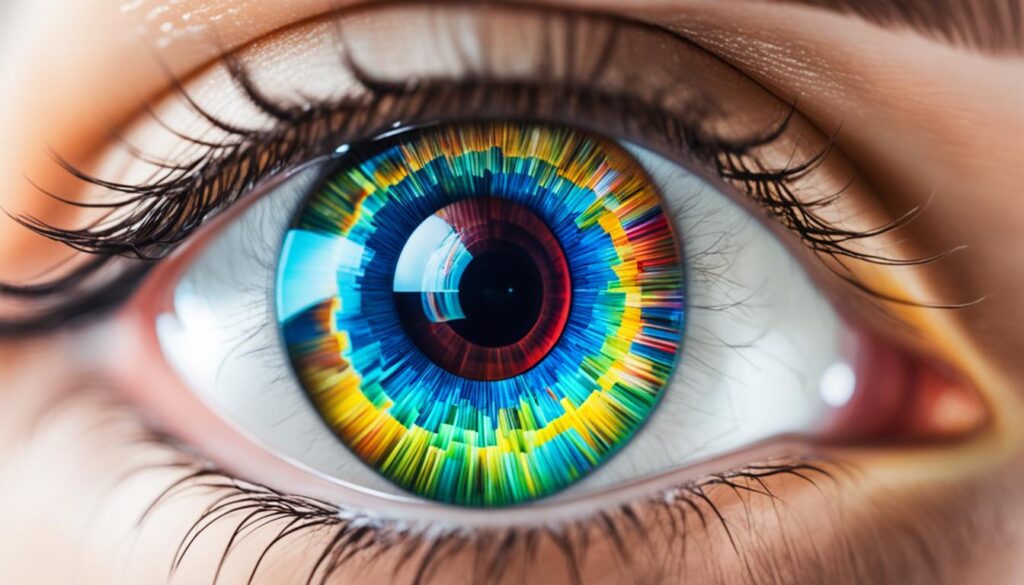“Do not judge, for you too shall be judged.” – Buddhist Proverb
When we judge others, it actually says more about ourselves than the people we are judging. Judging is a natural tendency that stems from our innate need to create hierarchies and define our worth. However, judging others is a reflection of our own insecurities, fears, and unresolved issues. It reveals a lack of self-awareness and emotional intelligence, as well as a need to feel superior or inferior. By understanding the reasons behind our judgments and cultivating self-reflection, mindfulness, and empathy, we can embark on a journey of personal growth and develop a deeper understanding of others.
Key Takeaways:
- When we judge others, it reflects our own insecurities and unresolved issues.
- Judging others reveals a lack of self-awareness and emotional intelligence.
- By cultivating self-reflection, mindfulness, and empathy, we can embark on a journey of personal growth.
- Judging others inhibits our ability to truly understand and connect with others.
- Developing self-awareness and empathy allows us to break free from the cycle of judgment and foster personal growth.
Understanding the Psychology of Judging Others
Psychology provides valuable insights into the complex phenomenon of judging others. By delving into areas such as attribution theory, projection, shadow, and personality traits, we can begin to unravel the intricacies of our judgments.
Attribution Theory: A Lens to Understand Behavior
Attribution theory, developed by social psychologist Fritz Heider, explores how individuals assign causes to behavior. It suggests that when we observe others’ actions, we often focus on their behavior rather than considering the situational context. This tendency to attribute causality to the actions of others can lead to judgments based on incomplete information.
Projection: A Reflection of Our Own Flaws
The concept of projection, as introduced by renowned psychologist Carl Jung, sheds light on the judgmental tendencies we exhibit. According to Jung, projection is the process of attributing our own flaws, insecurities, and undesirable traits onto others. In essence, we magnify these characteristics in others and judge them, often to avoid confronting them within ourselves.
The Shadow: Unconscious Influences on Judgment
Jung also introduced the concept of the shadow, which represents our unconscious dark side. The shadow encompasses the traits and aspects of ourselves that we perceive as negative or unacceptable. When we encounter individuals who exhibit qualities associated with our shadow, we may unconsciously project our perceived personal inferiorities onto them, resulting in judgments.
Personality Traits: A Mirror for Self-Judgment
Personality traits, as identified by psychologist Raymond Cattell, shape the way we judge others. Interestingly, we tend to judge others for traits that we have not fully acknowledged or accepted within ourselves. This suggests that our judgments may serve as a reflection of our internal struggles and unexplored aspects of our own personalities.
Understanding these psychological concepts helps us decipher the underlying motivations behind our judgments. By recognizing the impact of attribution theory, projection, the shadow, and our own personality traits, we can embark on a journey of self-awareness and growth.

| Psychological Concepts | Description |
|---|---|
| Attribution Theory | Examines how individuals assign causes to behavior, often focusing on the actions of others without considering the situational context. |
| Projection | The process of seeing our own flaws in others, magnifying those flaws, and judging them as a means of avoiding personal reflection. |
| The Shadow | Represents our unconscious dark side, encompassing traits and aspects that we perceive as negative or unacceptable. This can lead to projecting personal insecurities onto others. |
| Personality Traits | Unique characteristics that influence the way we perceive and judge others. We often judge individuals for traits we have not fully owned or accepted within ourselves. |
The Mirror Effect: How Judging Reflects on Ourselves
When we judge others, we are actually revealing more about ourselves than the people we are judging. Our judgments reflect our own insecurities, unresolved issues, and unacknowledged traits. The things we detest and judge in others are often things we cannot accept about ourselves. The world around us acts as a mirror, showing us aspects of ourselves that we may not be fully aware of or willing to confront. By understanding that our judgments are relative and subjective, we can gain self-awareness and embark on a journey of personal growth and acceptance.

The mirror effect of judging others is a powerful tool for self-reflection and self-perception. When we observe our judgments towards others, we can uncover valuable insights into our own inner world. It’s important to remember that the judgments we make are influenced by our own experiences, beliefs, and biases. By acknowledging and examining these judgments, we can gain a deeper understanding of ourselves and our personal growth opportunities.
Self-awareness plays a crucial role in this process. By becoming aware of our own insecurities and unresolved issues, we can start to address them with compassion and acceptance. It’s essential to recognize that judging others often stems from our own fears and vulnerabilities. By cultivating self-awareness, we can develop a more compassionate and understanding mindset towards both ourselves and others.
The Power of Personal Growth and Acceptance
Embracing the mirror effect of judging can lead to profound personal growth and self-acceptance. As we become more aware of our judgments, we can choose to work on ourselves and strive for positive change. Rather than focusing on others’ flaws, we channel our energy towards personal development.
Acceptance plays a crucial role in this process. When we accept ourselves, including our flaws and imperfections, we become more accepting of others as well. It’s a journey of self-compassion where we learn to extend understanding and empathy towards ourselves and those around us.
In conclusion, the mirror effect of judging others provides a unique opportunity for self-reflection, self-awareness, and personal growth. By embracing this reflection and using it as a tool for self-perception, we can gain valuable insights into our own insecurities and unresolved issues. Through acceptance and personal growth, we can develop a more compassionate and understanding mindset towards ourselves and others.
Hierarchy and Comparison: The Pitfalls of Judging
Judging others is deeply rooted in the human tendency to create hierarchies and compare ourselves to those around us. We constantly seek validation and strive to feel superior or better than others. It’s a way for us to define our self-worth based on these comparisons. However, this mindset of comparison can be detrimental to our well-being.
When we engage in judgment, we perpetuate a cycle that prevents us from truly understanding others and ourselves. It hinders personal growth and creates a barrier to genuine connection and empathy. We become so focused on being superior or inferior that we lose sight of our own individuality and the unique qualities that make us who we are.
Instead of falling into the trap of hierarchy and comparison, we can cultivate self-acceptance, self-worth, and self-compassion. Recognize that each person’s journey is unique, and everyone has their own strengths and weaknesses. Embrace the idea that our worth is not determined by external comparisons, but rather by our own sense of self.
By shifting our mindset from judgment to curiosity, we can explore the diversity of the human experience with an open heart and mind. This allows us to appreciate the complexities of others, fostering genuine connection and empathy. Embracing self-acceptance and self-compassion enables us to extend the same understanding and compassion to those around us.
Remember, comparison and superiority only create distance and prevent true connection. Instead, let us choose self-worth, self-acceptance, and self-compassion as guiding principles in our interactions with others. By doing so, we can break free from the pitfalls of judging and create a more compassionate and inclusive world.
| Comparison and Judgment | Self-Acceptance and Self-Compassion | |
|---|---|---|
| Effects on Self | – Feelings of superiority or inferiority | – Enhanced self-worth and self-acceptance |
| Effects on Relationships | – Distance and barriers to connection | – Genuine empathy and understanding |
| Personal Growth | – Stagnation and limited perspective | – Openness and expansion of mindset |

The Importance of Self-Awareness in Overcoming Judgments
In the journey of personal growth, overcoming judgments plays a significant role. To truly understand and navigate our judgments, we must start with self-awareness. By developing a deep understanding of ourselves, including our tendencies, conditioning, and life experiences, we gain valuable insights into our judgments and their underlying motivations.
Introspection, the process of looking inward, allows us to question our judgments and examine the biases that may influence them. Taking the time to reflect on our thoughts and emotions helps cultivate emotional intelligence and a greater sense of self-awareness. It enables us to recognize when our judgments stem from our own insecurities, fears, or unresolved issues.
Through self-awareness, we can foster a mindset of curiosity, empathy, and understanding towards others. By acknowledging our own imperfections and limitations, we develop a sense of humility and compassion. We begin to see others not as objects to be judged, but as individuals on their own unique journeys of personal growth.
Self-awareness empowers us to step beyond the limitations of our judgments and embrace personal growth and transformation. It allows us to break free from the patterns of judgment, replacing them with openness, understanding, and empathy.
By recognizing our own biases and tendencies, we can approach situations with a more open mind and a willingness to learn from others. This self-awareness invites us to challenge our preconceived notions, biases, and stereotypes, allowing for personal growth and an expanded worldview.
In the journey of overcoming judgments, self-awareness is the key that unlocks the door to personal growth, empathy, and understanding. It enables us to navigate the complexities of human behavior with compassion and curiosity. Through self-reflection and a commitment to self-awareness, we can foster a more harmonious and compassionate approach to the world around us.
Resisting the Urge to Judge: Strategies for Growth
Resisting the urge to judge others can be a challenging task, but it is essential for personal growth and fostering harmonious relationships. By implementing these strategies, you can cultivate open-mindedness, curiosity, empathy, self-awareness, and compassion in your interactions:
- Seek to understand before judging: Instead of immediately forming judgments, take the time to understand the perspectives, experiences, and motivations of others. By approaching situations with an open mind, you can gain valuable insights and develop empathetic connections.
- Cultivate curiosity and openness: Embrace a mindset of continuous learning and explore different viewpoints. Be willing to question your own beliefs, challenge assumptions, and explore new ideas. This openness fosters personal growth and expands your understanding of the world.
- Show empathy towards others’ situations: Put yourself in others’ shoes and try to understand the emotions and challenges they may be facing. By practicing empathy, you can develop a deeper appreciation for the complexity of human experiences and form genuine connections.
- Develop self-awareness through self-forgiveness, self-acceptance, and self-compassion: Recognize that judgements often stem from unresolved issues and insecurities within yourself. Practice self-forgiveness for past judgments, accept your imperfections, and show compassion towards yourself. This self-awareness allows for fairer and more compassionate assessments.
- Adopt more constructive thought patterns: Challenge negative thought patterns and replace them with positive and constructive ones. Cultivate a mindset of understanding, growth, and acceptance. By consciously reshaping your thought patterns, you can break free from the cycle of judging and foster personal and societal harmony.

Implementing these strategies requires intentional effort and a commitment to personal growth. It’s important to remember that open-mindedness, curiosity, empathy, self-awareness, and compassion are skills that can be developed with practice. By resisting the urge to judge and embracing these qualities, you can create a more compassionate and understanding world.
Conclusion
Judging others is a powerful tool for self-discovery and personal growth. It serves as a mirror, reflecting our own insecurities, unresolved issues, and unacknowledged traits. By embracing self-awareness and practicing self-reflection, we can unravel the inner workings of our judgments and gain a deeper understanding of ourselves.
But personal growth does not stop there. It extends to our interactions with others. By developing empathy and self-compassion, we can transcend the limitations of judgment and foster a genuine understanding of those around us. When we approach the world with an open mind, curiosity, and empathy, we create a space for growth and compassion.
Let us make a commitment to personal growth, for it is through self-reflection and self-compassion that we break free from the constraints of judgment. Together, we can build a harmonious society where understanding, empathy, and self-reflection thrive. Remember, personal growth starts within, but its impact extends far beyond ourselves.
FAQ
How does judging others reflect on ourselves?
When we judge others, it actually says more about ourselves than the people we are judging. Judging is a reflection of our own insecurities, fears, and unresolved issues. It reveals a lack of self-awareness and emotional intelligence, as well as a need to feel superior or inferior.
What is the psychology behind judging others?
Attribution theory explains how we assign causes to behavior, often focusing on the actions of others rather than considering the situational context. Projection, as described by Carl Jung, is the process of seeing our own flaws in others, magnifying those flaws and judging them. Raymond Cattell’s identified personality traits also play a role in the way we judge others.
How does judging others reflect the mirror effect?
Our judgments reflect our own insecurities, unresolved issues, and unacknowledged traits. The things we detest and judge in others are often things we cannot accept about ourselves. The world around us acts as a mirror, showing us aspects of ourselves that we may not be fully aware of or willing to confront.
What are the pitfalls of judging based on hierarchy and comparison?
Judging others is rooted in the human tendency to create hierarchies and compare ourselves to others. This mindset perpetuates a cycle of judgment, prevents understanding, and hinders personal growth. It can also negatively impact self-worth and prevent self-acceptance and self-compassion.
Why is self-awareness important in overcoming judgments?
Self-awareness is crucial in understanding the motivations behind our judgments and fostering personal growth. It allows us to question our judgments, cultivate emotional intelligence, and develop empathy and understanding towards others. Through self-awareness, we can break free from judgment and develop a compassionate approach to the world.
How can we resist the urge to judge and promote personal growth?
Strategies to resist judgment and promote personal growth include seeking to understand before judging, remaining curious and open to new perspectives, and practicing empathy towards others’ situations. Developing self-awareness through self-forgiveness, self-acceptance, and self-compassion allows us to assess judgments more fairly and compassionately.
What is the importance of personal growth and understanding others?
Personal growth and understanding others go hand in hand. By embarking on a journey of self-reflection, self-compassion, and empathy, we can overcome the pitfalls of judging and develop a deeper understanding of others. This fosters personal growth and creates a more harmonious and compassionate society.

